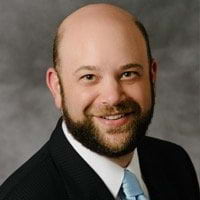Top Myths About Home Equity Lines Of Credit
Home Equity Lines of Credit (HELOC) are useful for: (1) avoiding mortgage insurance, (2) paying for improvements to the property, and (3) paying down car loans, credit card bills, medical debt or other debt. We often hear these three myths when consulting with clients who have a HELOC.
Myth #1 – A HELOC is not a mortgage
A HELOC is a home equity line of credit. The loan itself is based on the equity the homeowner has in their house, and the borrower signs a mortgage that is recorded in public records. Many people believe a HELOC is not a mortgage because they are issued checks or debit cards with the loan.
Myth #2 – HELOCs are not revolving lines of credit
Myth #1 pointed out the first two letters of the acronym. This myth concerns the last three letters – Home Equity Line of Credit. As the borrower pays down the loan and as the house appreciates in value, the homeowner can borrow more money (using the checks or debit card tied to the account). Typically, HELOCs have a shorter term than conventional mortgages, so the borrower may not be able to borrow against the loan after 10 or 15 years, but up until that point, if the homeowner pays down the loan, they can then borrow more money.
Myth #3 – The HELOC lender cannot foreclose
This is false. The second position HELOC lender can certainly foreclose if payments fall behind. If the lender’s foreclosure is successful, the winning bidder at the foreclosure sale will own the house subject to any first mortgages or superior liens (like homeowner or condominium association liens). This means that the person who buys the house at the foreclosure auction will still have to pay the first mortgage, property taxes, or any other superior liens before they can own the house free and clear.
Myth #4 – I will not get a 1099 from the short sale or foreclosure of my HELOC, or the 1099 will not be taxable.
Under IRS Rules and Regulations, the lender MUST issue a 1099 if it waives more than $600 in debt. The reason is because this forgiven debt is a benefit to the borrower in that it will not have to be repaid. Some taxpayers believe that the Mortgage Debt Relief Act of 2007 (“MDRA”), which was extended for short sales, deeds in lieu of foreclosure, and foreclosures that occurred through December 31, 2014, will prevent the lender from issuing the 1099-C. To the contrary, the MDRA provides an exclusion of forgiveness of debt income under certain circumstances. Also, the fact that the house is a borrower’s primary residence is only one element of the MDRA. For the MDRA to apply, the debt must also have been incurred for the purpose of buying or improving the primary residence. Thus, foregiveness of debt income will only qualify for exclusion under the MDRA if it was used to buy or make improvements to the house. If the HELOC was used to consolidate credit cards, pay off a car, or buy investment property, the 1099-C income would not be excluded based on the MDRA (maybe by some other tax rule).
As with any financial product, borrowers should understand the terms and conditions of any loan they make that is secured by their home. For more information on Foreclosure issues, or to schedule a free initial consultation to discuss your options, please contact our firm at: 727-261-0224 or email me at shawn@yesnerlaw.com.
Shawn M. Yesner, Esq., is the founder of Yesner Law, P.L., a Tampa-based boutique real estate and consumer law firm that helps clients eliminate debt by providing options, so they can live the lifestyle of their dreams. We assist clients with Chapter 7, Chapter 13, bankruptcy, liquidation, reorganization, foreclosure defense, debt settlement, landlord/tenant issues, short sales, and loan modifications in Tampa, Westchase, Oldsmar, Clearwater, Pinellas Park, Largo, St. Petersburg, and throughout the greater Tampa Bay area.




